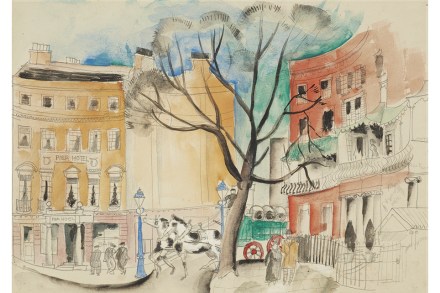A born rebel: Lady Caroline Lamb scandalises society
At the beginning of her biography of the novelist, ‘fairy sprite’ and proto-feminist Lady Caroline Lamb, Lady Antonia Fraser hints that this may be her final book. Not for her a dramatic, Prospero-breaking-his-staff exit; instead, she writes mildly in the prologue that ‘this book… can also be regarded as the culmination of an exciting and fulfilling life spent studying history’. We must hope that Fraser continues to research and publish. Yet if this is to be her swansong, it is characteristically readable, accomplished and in places positively revolutionary. Glenarvon, Caro’s stinging attack on Byron, became a bestseller, even as it led to her banishment from society Lamb – or Caro




















